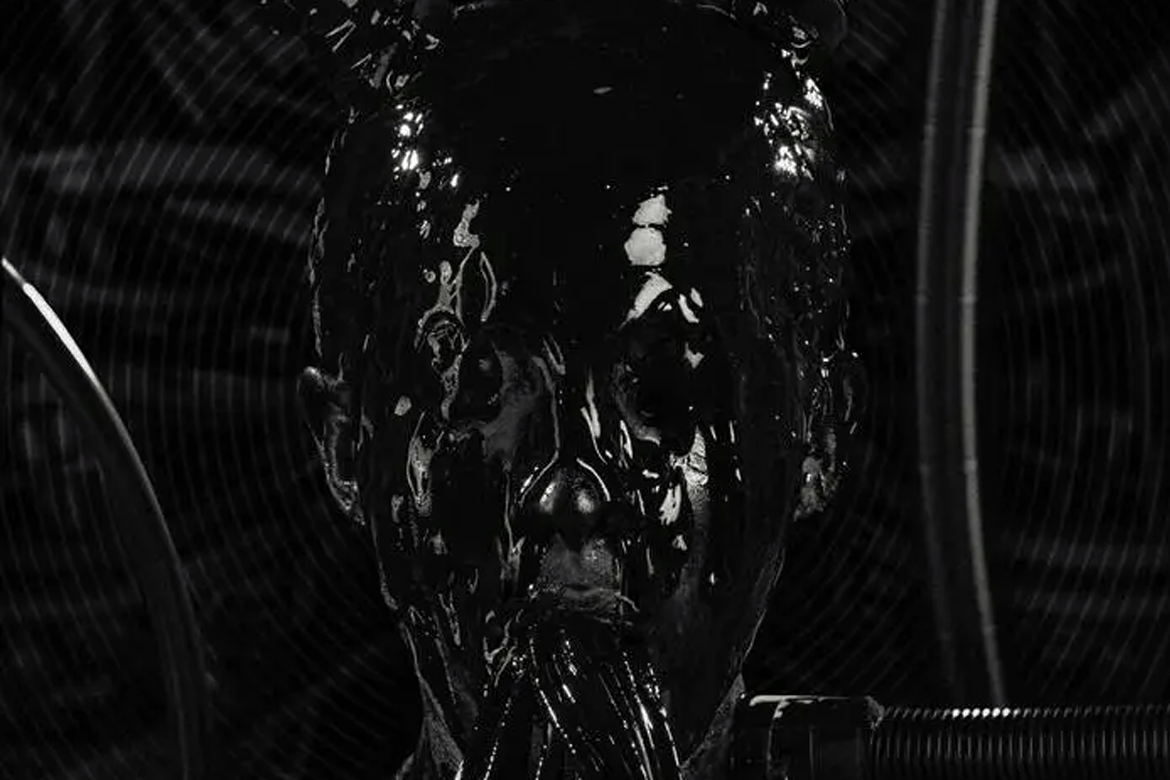“Just wake me up when it’s safe to be alive.”
Beginning their tenure in roots of concept-driven deathcore before branching out to a more melodic, progressive metalcore sound, Melbourne’s Gravemind have already displayed an impressive range. An underrated force in the Australian metalcore scene, their 2019 album, Conduit, saw them connecting with a wider audience with said pivot in sound. Owed in part to the departure of a few members, the band went quiet for a few years before returning in 2022 with “Deathtouch”, featuring their new vocalist, Bailey Schembri. Their upcoming sophomore album, Introsphere, arrives as the result of the years of recalibration and realignment.
Album opener “>_TERMINAL” immediately sets the stage for the album to come, with unsettling static and white noise launching into a barrage of aggressive riffs. Schembri’s vocals command a menacing presence, matching the aggression with remarkable range, bringing gritty mid-range screams and crushing gutturals to the party. Unmistakbly groovy, the track’s (and album’s) production is helmed by Scottie Simpson of Alpha Wolf, bringing an appropriately heavy bite to Introsphere’s sound.
In recent years, the heavier styles of modern metalcore seem to have hit a creative plateau, with more and more bands churning out increasingly uninspired material. Gravemind manages to subvert this decline with a clear sense of purpose that manifests in ferocity. “House of Cards” takes the skeleton of a modern nu-metalcore track, but supplements it with an eclectic display of djenty riffs that give it character. Frantic harmonic panning and slides bring a chaotic flair to the track. It’s a relentless track, full of curveballs which crescendo on a massive riff breakdown closing out the track where most bands would opt for something more paint-by-numbers.
Although they’ve never really lost their deathcore roots, Introsphere seeks to bring those influences back in harmony with their current sound. Leveraging on Schembri’s vocal abilities, “Rorschach” drops into high shrieks without warning, carrying the feral aggression of before into a different direction. The guitar work incorporates tech-death influences in its composition, displaying the skill of guitarists Aden Young, Damon Bredin, and Miki Simankevicius.
Amidst the aggression, the album still retains the melodic notes explored by the band previously. With its rather high-energy opening numbers, mid-album cut “Anhedonia” slows things down the right amount. Leaning more into the band’s progressive metalcore influences, it demonstrates Schembri’s clean vocal abilities, solidifying his position as an all-rounder frontman. Taking on a more somber and desperate tone, the track brings a sorrowful ambience to match, while still maintaining heavier twists that keep a sense of cohesion with the rest of the album. Reba Meyers of Code Orange makes an appearance on the bridge, with her vocals lending an impactful contrast to Schembri’s. A pleasant surprise to her more emotional, melodic vocals comes in the form of a screamed verse over the track’s ending breakdown. Meyers’ feature ultimately feels purposeful and adds an intriguing dimension to the track and, combined with its earlier qualities, makes it a standout.
The same sentiment is felt for all of the album’s features. Jamie Hails of Polaris makes an appearance on “F.E.A.R”, one of the album’s heavier hitters. His unhinged vocal style mesh well with the unbridled anger of the track, elevating its impact satisfyingly. Mick Gordon lends his production talents to “Failstate”, bringing his signature djenty style to the mix. Although more subtle, his influences are definitely felt on the track, giving it an added heft.
“Aloy” takes a more melodic approach as well, featuring one of the album’s few clean choruses. The track’s heavy melancholy hides a rather heartfelt song underneath, with Schembri expressing hope and gratitude towards his own children as they gave him renewed purpose in life. There’s always been something undeniably special about how effective this style of music is at conveying emotion, and this is an excellent example of that. Embedded in its intensity is a purpose, and this quality is something that is consistent throughout the album.
Sonically, the album indisputably hits its peak on “True Life”. It opens on a deceptively gentle note, with melodic leads layered atop a backing of fills from drummer Karl Stellar. The track builds in intensity so subtly that it’s barely noticed, layering on levels of intensity with each section. The tech-death guitar work is much more prominent here, breaking into a gnarly and almost gratuitous breakdown. The track’s structure is unpredictable, approaching the songwriting with an intriguing progressive metal inclination. Everything the band has is on display, including an impressive solo in the middle of the track. The track truly hits a climax with a blackened deathcore section, with an ominous chord progression giving way into a brutal flurry of blast beats from Stellar, accompanied by a piercing shriek from Schembri. “True Life” is undoubtedly one of the album’s major highlights, truly a cinematic experience that shows all that Gravemind is capable of.
Album finisher “Pranic Lift” begins on a gloomy and eerie note, with a lone ominous lead backed by drowned out screams. It gradually builds back into the aggression, connecting with the rest of the album sonically while presenting itself in a more grandiose manner. The feeling of despair that the album embodies is encapsulated here, driving the impact home with one final swing.
Introsphere is an album that is characterized by maturity and growth in Gravemind’s sound. In a precarious balance of past influences and newer experimentations, the band manages to hit the sweet spot. Combined with an earnest presentation of its personal lyrical themes, the album is one that feels genuine and purposeful in its heaviness. At times, this intensity can feel almost overwhelming, but the variety in the album’s songwriting elements keeps that from fully happening. In its entirety, Introsphere represents a band with a clear identity and intention, traits that translate directly to their work.
8/10
Introsphere releases on the 2nd of August via Greyscale Records. Pre-order and merch links for the album can be found here.

